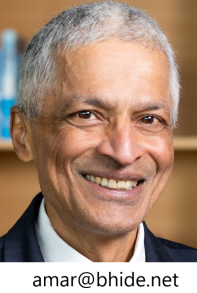Hindu/Vedantic views on life and death (rather personal!)
An oped in today’s WSJ about “Rage[ing] Against the ‘Bioethicists’ and the Dying of the Light” reminded me how different Hindu/Vedantic attitudes to life and death are from Judaic/Christian ones.
I had emailed this to a stressed friend about ten days ago (nobody had died btw)
“I guess I am very Hindu about all this.
“This is from the Bhagwad-geeta (P.Lal translation).
For death is sure of that which is born, and of that which is dead, birth is certain.
Why do you grieve over the inevitable ?
“All things are unmanifest in the beginning, manifest in the middle and unmanifest at the end.
Is this a cause for grief ?
“This embodied atman, Arjuna, is imperishable. You have no reason to grieve for any creature.”
Then there are other fine couplets from Tagore’s Geetanjali. eg
And because I love this life
I know I shall love death as well.
The child cries out when
From the right breast the mother
Takes it away, in the very next moment
To Find in the left one
Its consolation.”
This was I believe the principle my mother lived — and died by.
In 1999, my mother, then 67, decided to have ‘elective” surgery to have her gall bladder removed. She was having problems with gall stones and wanted to go to a conference in South Africa — where she had never been and was concerned about a gall stone attack when she was outside the country.
She asked me to come to Bombay (I was teaching at HBS then) for her operation to “help out” which I duly did.
Why do you grieve over the inevitable ?
“All things are unmanifest in the beginning, manifest in the middle and unmanifest at the end.
Is this a cause for grief ?
“This embodied atman, Arjuna, is imperishable. You have no reason to grieve for any creature.”
Then there are other fine couplets from Tagore’s Geetanjali. eg
And because I love this life
I know I shall love death as well.
The child cries out when
From the right breast the mother
Takes it away, in the very next moment
To Find in the left one
Its consolation.”
This was I believe the principle my mother lived — and died by.
In 1999, my mother, then 67, decided to have ‘elective” surgery to have her gall bladder removed. She was having problems with gall stones and wanted to go to a conference in South Africa — where she had never been and was concerned about a gall stone attack when she was outside the country.
She asked me to come to Bombay (I was teaching at HBS then) for her operation to “help out” which I duly did.
The night before the operation she told me although it was routine surgery, all surgery has its risks and she thought there was a 5-10% chance she’d die.
But she said, she’d taken chances all her life. All in all it had been a good one. If she died now, so what?
The operation seemed to go fine, but because of poor post-op care and/or hospital hygiene, she did in fact die.
I dont think she made a bad “before the fact” bet. I suspect she’d think that too.
I personally have unambiguous DNR instructions and have told my sister (a physician) that if there is the slightest ambiguity, not to intervene.
But she said, she’d taken chances all her life. All in all it had been a good one. If she died now, so what?
The operation seemed to go fine, but because of poor post-op care and/or hospital hygiene, she did in fact die.
I dont think she made a bad “before the fact” bet. I suspect she’d think that too.
I personally have unambiguous DNR instructions and have told my sister (a physician) that if there is the slightest ambiguity, not to intervene.
